Project Management. Design Process Backstage
Project Management. Design Process Backstage The article considering the role of project management in successful design process. Important points and practical tips from Tubik Studio Project Manager.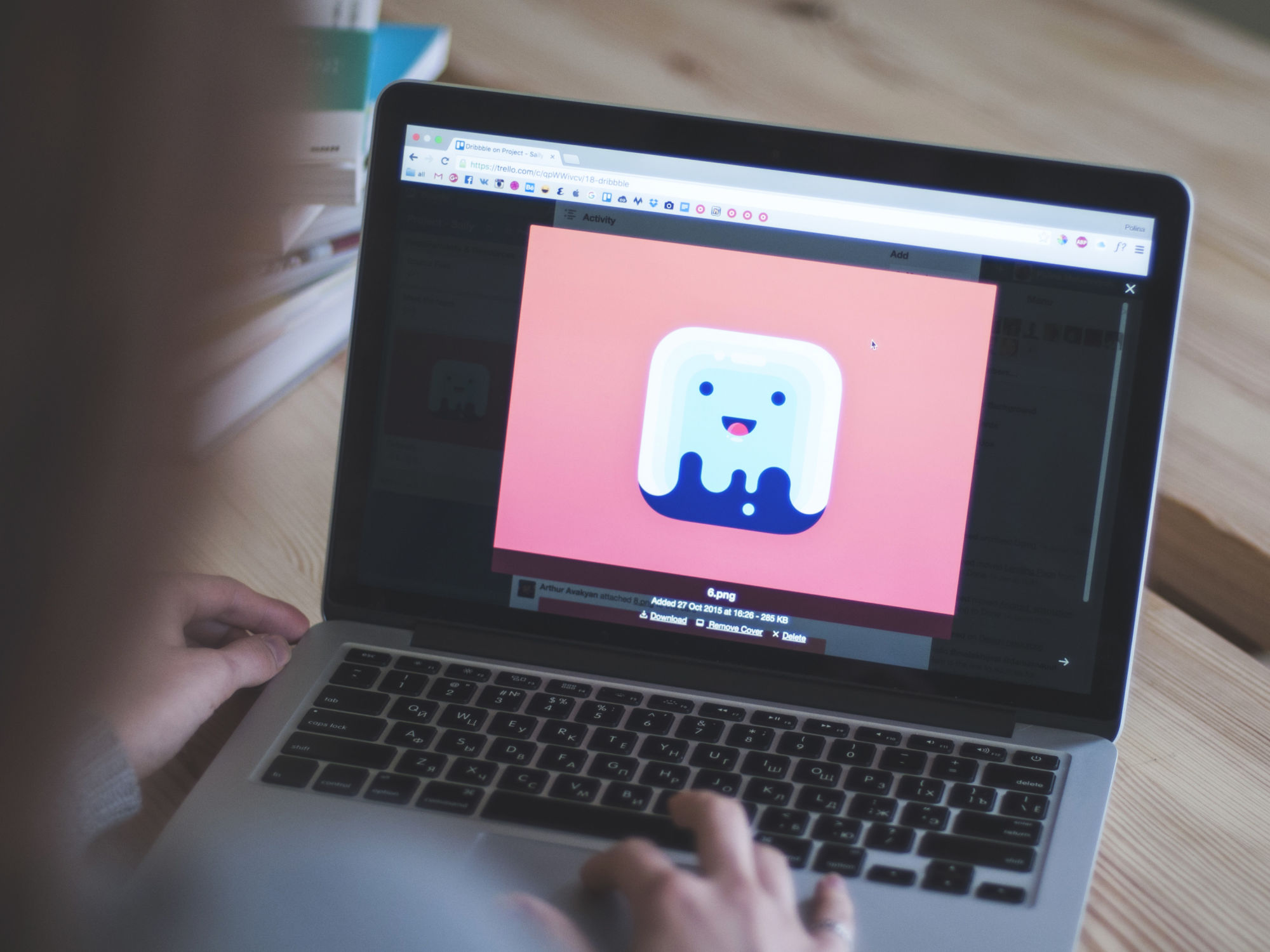
Behind every complex and responsible project in any creative sphere, you will find not only creators but also a person or people who support them in this process. They take a lot on their own shoulders to enable all the complicated mechanisms of project accomplishment to run like clockwork. They communicate with the customers, set and follow deadlines, solve misunderstandings, explain all the issues to all sides of the process, and sometimes really need to be strong enough to stop the creator when he or she goes too far from the task. They need to know all the details and parts of the process to work, like the conductors controlling the orchestra at every single sound to perform a successful and satisfying result. They are project managers.
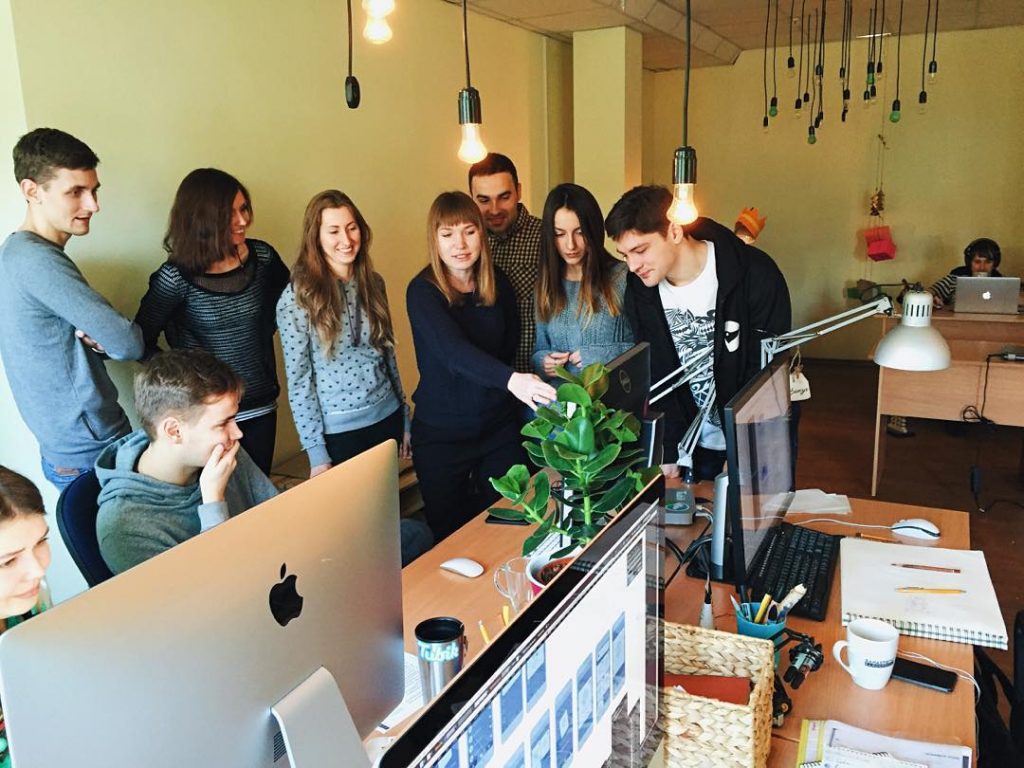
Studio designers and project managers brainstorm
Today, we decided to think over this important part of the design process, which is constantly proven as one of the keys to efficient performance and high productivity.
The Essence of Project Management
Project management could actually be defined as the process of supporting and maintaining efficient, fast, and productive communication between all sides of the project (customer(s), designer(s), developer(s), sales manager(s), etc.) Actually, the project manager is a specialist who provides communication at all levels and general supervision of all the processes, obtains and processes necessary information, together with the creator, estimates the time of accomplishment for the design task, and – one of the hardest things for creative guys! – follows and keeps the deadlines, pulling all the ropes necessary to do it.
One of the famous American speakers and specialists in human behavior, Denis Waitley, said: “Expect the best, plan for the worst, and prepare to be surprised”. That is a really exact description of the project management process in design, full of surprises, discussions, disagreements, and iterations, but still working much better when carefully planned and controlled.
Project Management in Practice
One of Tubik Studio’s project managers, Olena is sincerely keen to tell our readers a bit more about the backstage of the design process from the perspective of project management as the supportive link between designers and customers. Having extensive experience working on diverse design projects, she emphasizes that a lot of points in creating handy UX/UI design features are put to use by the studio team on a daily basis, and that is the result of talents working on the basis of good team spirit and efficient organization. So, let’s catch up with her practical ideas based on devoted work in the design field.
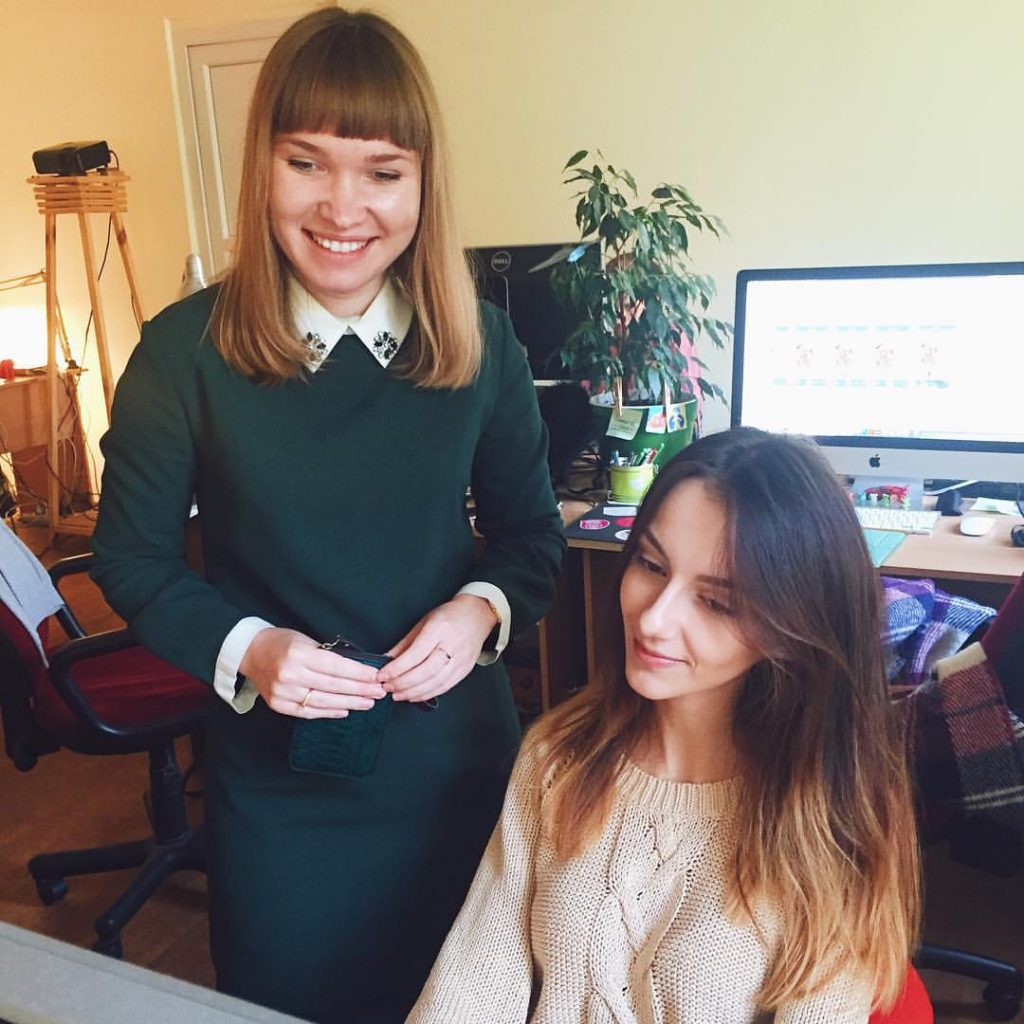
Project manager and UI/UX designer discussing feedback from customers
Aiming at the individuality and uniqueness of every product we tackle, the sheer application of modern design strategies and tendencies seems not enough to end up with fruitful results. It is also important not to give a miss to what stands behind the actual workflow and how projects are carried out from an organizational point of view. Accordingly, Olena would like to share some project management tips today, focusing on high-performance leverages.
To start off, let’s shed some light on the importance of boosting designers’ efficiency. The issue is quite simple in theory and surprisingly complex in practice: happy designers do a great job! Eager to work, they think out of the box and put forward original and working solutions to any challenge they face. In addition, they stick to deadlines and, even if timeframes are a bit exceeded, your customers feel satisfied since they know for sure that the designer works his/her fingers to the bone, brainstorming and trying out all possible means to breathe life into the project. Sounds good, doesn’t it? Here are a few points that can break the ice and trigger designers’ creativity and energy to work.
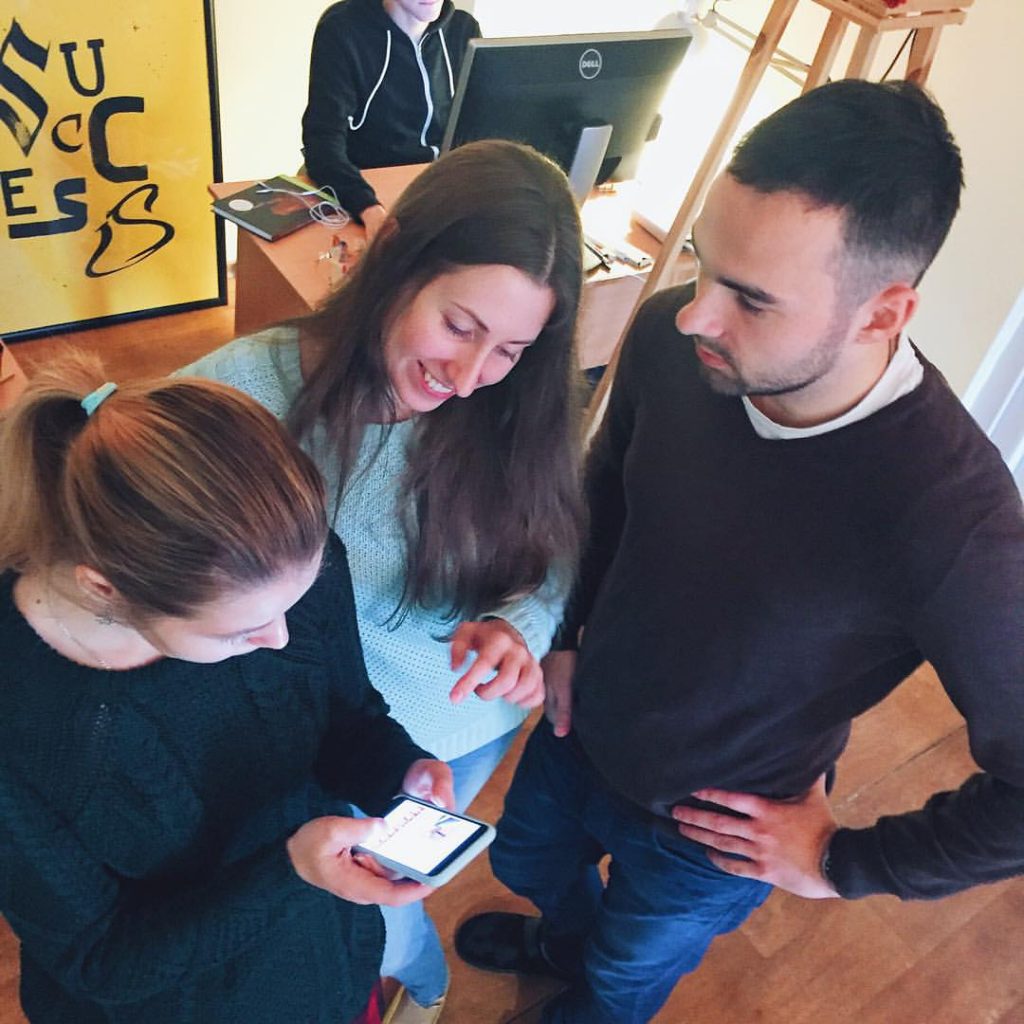
Project manager Olga and studio designers testing the upcoming app
Project Manager’s practical tips
1. Customer and Designer: two peas in a pod.
Do not forget that each stakeholder thinks differently. In other words, you have to be aware that customers and designers take things individually. The former are inclined to conjure up future design mostly from a layman’s perspective, while the latter adds a professional touch, which sometimes contradicts what your customer wants.
There is no need to explain how stressful such a situation is for each party. The role of a project manager here is to bridge the gap between both. You need to explain to your customer that the designer struggles for the best outcome: modern approach, usability, high conversion rate, etc. On the other hand, be obstinate in persuading the designer that some sacrifices to his/her concept will do no harm to the project, and there are often ways to reach a consensus thanks to alternative solutions.
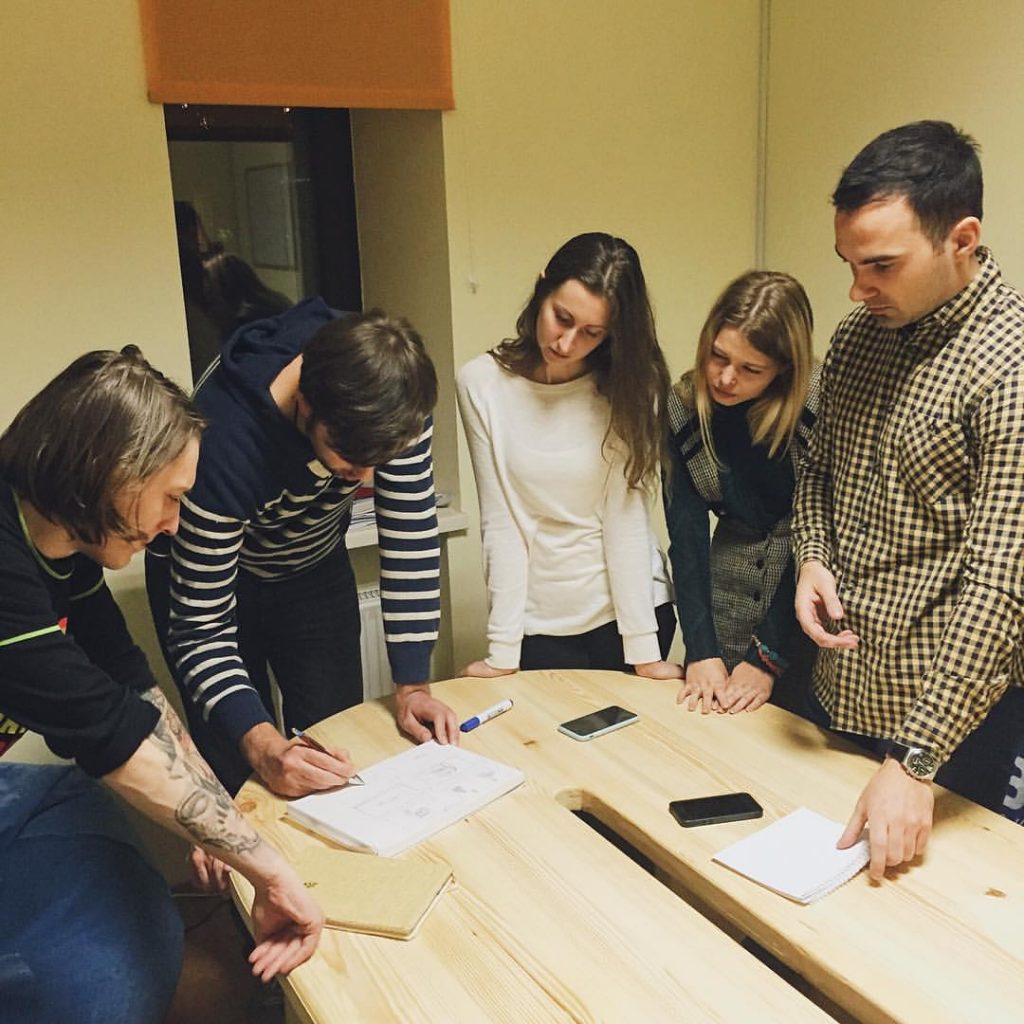
Dive deep into the creative process
Moreover, prove both parties have an opportunity to talk to each other because personal involvement makes wonders and conciliates contradictory points of view. The more they communicate, the more plausible chances are they will head for the same goal in the same direction.
2. Be a source of inspiration.
It does not mean you should turn into a fairy godmother. You just need to keep your designer’s creative poise. This is a tricky task as we are all human beings with mood swings, up and downs of life, and weather sensitivity – anyone can insert one more million reasons here.
However, either down in the dumps or on cloud nine, it is crucial to stay professional and cope with constantly upcoming tasks. You cannot be a savior to your designer’s life breakdowns, but, luckily enough, there is a hot tip to rouse their creativity from slumbers. English proverb saying that “Patience is a plaster for all sores” is an ideal piece of advice for a PM, though it does not answer the question of how to deal with crestfallen designers.
Just try to put forward as many ideas to the project as you can. They may be totally absurd or useful – the designer you work with will benefit from each! In the worst course of events, any professional would not put up with silly and unpractical recommendations. Normally, they get a bit irritated at the subliminal level due to weird suggestions that crank up the mechanism of contradiction. A person tries to bring about some ideas out of accord with what you offer. Needless to say, their ideas are full of professionalism and determination. Whenever you toss up useful suggestions, they can be further developed and polished by the expert, but at least he/she would climb out of the stagnation pit.

Project management is all about support.
In any case, this unobvious brainstorm brings high chances of boosting performance and keeping the designer inspired.
3. Find a personal approach to everyone.
It is not about an assembly line; there isn’t a comprehensive method to manage everyone and everything. Some people prefer working on their own, so if that is the case with you, do not poke your nose into what they do five times a day. Try to avoid disturbing them, referring generally to management issues only. Your golden rule is to do your best to ensure people can seek your help at any time.

Independent and resilient designers will still appeal to you when they need whereas shy personalities will pluck at you as a drowning man at a straw. On the contrary, some designers are more productive when they have someone to discuss the project with. Do not let him/her feel forlorn and desperate. Be there for support! This not only makes the designer you work with feel better but also contributes to your own deeper insight into the project flow.
To sum up, stay creative, and do not forget: it is designers who play a key role in the project, but you are the one who sets the pace. Be a conductor to make your orchestra perform successfully on the world stage.
Originally written for Tubik Blog
- English
- Ukrainian



